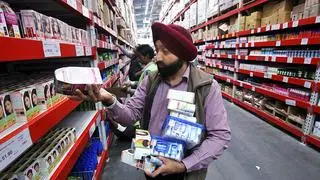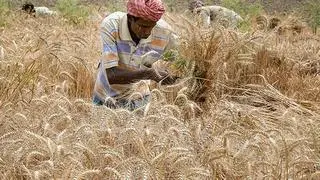The give and take at the on-going World Trade Organization’s (WTO) ministerial meet in Nairobi has begun in full earnest with India taking a strong stand on special safeguard measures (SSMs) to protect farmers against import surges and linking it to an agreement on export competition being pushed by a host of developed countries and farm lobbies including Australia, New Zealand, the EU and Brazil.
“We cannot have an agreement on export competition without having an agreement on SSMs. It was made clear to all members at the open session on agriculture here,” an official involved in the negotiations told BusinessLine .
New Delhi will also not agree on the tough disciplining measures that farm exporting nations have suggested as part of ‘export competition’ on exports by public sector bodies such as Nafed, MMTC and Trifed, the official added. Such restrictions would make it difficult for public sector enterprises to carry out procurement operations for export purposes.
Permanent solution sought“We also do not want the subsidies that we are allowed for transport and marketing to be phased out,” the official said, adding that the country was continuing to push for a ‘permanent solution’ for calculating farm procurement subsidies in a way that these do not get considered as farm distorting.
Lesotho’s trade minister, who has been appointed as the head of the agriculture negotiations group, is holding discussions with all interest groups to arrive at a draft agreement on issues including export competition, SSM and public stockholding.
“The SSM is important for developing countries to address import surges and price dips due to heavily subsidised imports of agricultural products from developed countries. All we are seeking now is an instrument that has been available to a select few for over two decades. We expect the membership to engage constructively on the issue so that we can arrive at an outcome in Nairobi,” Commerce Minister Nirmala Sitharaman said at the open session on agriculture on Wednesday.
Getting an SSM is important for India because there are items such as poultry and dairy where its applied tariffs is almost the same as its bound rates (tariff ceiling already agreed to) and it needs additional protection against import surges.
Export competition, which was originally supposed to target all export subsidies, is now being diluted to pander to the needs of countries such as the US and Switzerland, the official said.
The Minister, in her statement, pointed out that efforts were being made to cherry pick issues from within the export competition pillar and further to dilute the provisions to suit a few members.
“At this late hour new definitions and language are being proposed. It is not possible to react to these new concepts without extensive domestic consultations,” she said.







Comments
Comments have to be in English, and in full sentences. They cannot be abusive or personal. Please abide by our community guidelines for posting your comments.
We have migrated to a new commenting platform. If you are already a registered user of TheHindu Businessline and logged in, you may continue to engage with our articles. If you do not have an account please register and login to post comments. Users can access their older comments by logging into their accounts on Vuukle.